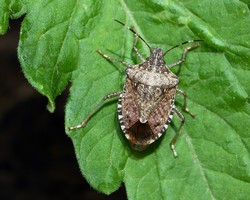Crops protected from insect attack
The stinkbug Nezara viridula attacks many important food crops throughout tropical and subtropical regions of Africa, the Americas, Asia, Australasia and Europe. While insecticides can be used to kill the pest, biological control represents a more environmentally friendly approach. The EU-funded BUGSIE (Better understanding of bugs for improved environment) initiative investigated whether a tiny parasitoid wasp, Trissolcus basalis, that attacks stinkbug eggs could be used as a biological control (biocontrol) agent. Scientists favour using this wasp to control stinkbugs because it kills the pest before it can develop into a feeding stage. In past biocontrol attempts, however, the parasitoid protected crops moderately and inconsistently. To make this biocontrol strategy more effective, EU and New Zealand scientists sought to better understand the parasitoid's biology, chemistry and behaviour. Their main goal was to tempt it to forage more on crops needing protection from stinkbug attacks. They found that a scent given off by buckwheat flowers attracted T. basalis, and could therefore be used to lure it to the crops. The scent can also be used with traps to monitor the biocontrol agent in the field. Although T. basalis is best at locating stinkbug eggs, scientists wanted to see whether a second species could improve its efficiency. They found that using T. basalis together with another egg parasitoid called Ooencyrtus telenomicida increased the timeframe over which crops are protected. This work adds to a growing body of evidence that agroecology is the best way to achieve food security. It also supports the European Parliament's framework for community action, which encourages alternative, eco-sustainable approaches to chemical farming.
Keywords
BUGSIE, Crops, Chemosensory response, Companion plants, Ecosystem services, Nezara viridula, Egg parasitoids, Trissolcus basalis, Ooencyrtus telenomicida

